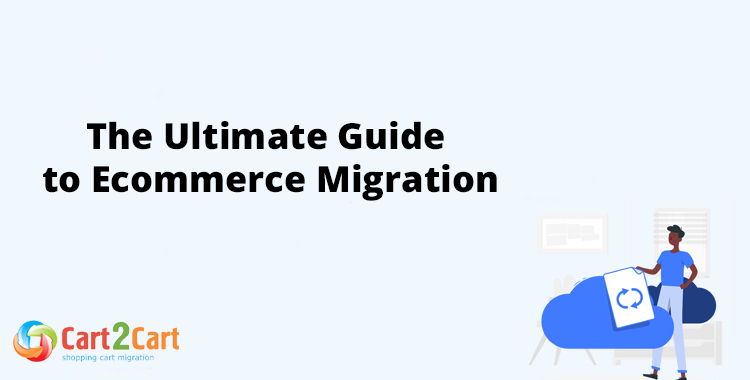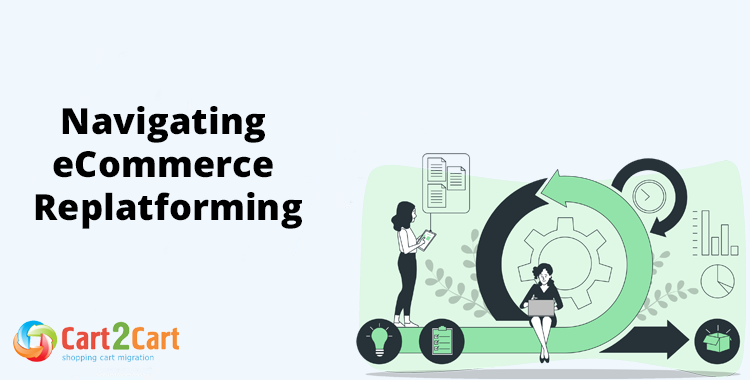Solidus Migration
Looking for a seamless Solidus Migration? Cart2Cart offers a fully automated, secure, and remarkably fast solution to migrate from Solidus to a new platform, often completed in just a few hours. Our proven process guarantees zero downtime for your source Solidus store, eliminating any disruption to your sales. We expertly handle the comprehensive transfer of your crucial data, including products, customers, orders, SEO URLs, and more, ensuring a complete and worry-free transition. Trust Cart2Cart's years of experience in eCommerce migrations to deliver a smooth, expert-led Solidus migration that protects your business and its valuable data.
How to Migrate to Solidus
This step-by-step guide details how to securely migrate to Solidus from any other e-commerce platform using Cart2Cart, ensuring complete data integrity for your online storefront.
- Register and Initiate: Create a Cart2Cart account to begin your platform switch. This initial step is free and takes only a minute.
- Connect Your Source Store: Provide the credentials for your current platform to allow secure API access for the data transfer.
- Connect Solidus Target Store: Prepare your data in a CSV file according to Solidus's import requirements. This file-based approach allows you to structure and validate your data before the final import.
- Select Data and Options: Choose which data entities to move, including products, SKUs, and customer orders. Configure crucial options like 301 redirects to preserve your SEO rankings.
- Run a Free Demo Migration: Launch a free test transfer to move a limited set of your data. This allows you to check the results directly in your new Solidus store before the full replatforming.
- Launch the Full Migration: Once satisfied with the demo, start the full migration. The process runs on our servers, ensuring no downtime for your business.
Pro-Tip: Since this is a target-only migration via CSV file import, ensure your file is meticulously formatted to match the Solidus data structure for a seamless import. No additional plugins are required for this process.
Automated migration
Just set up the migration and choose the entities to move – the service will do the rest.
Try It Free
Data Migration Service Package
Delegate the job to the highly-skilled migration experts and get the job done.
Choose Package
What data can be migrated from/to Solidus
-
Products
-
Product Categories
-
Manufacturers
-
Customers
-
Orders
Choose all the extra migration options and get 40% off their total Price
We’re committed to protecting our customers’ data security. Check out our Security Policy
The Cart2Cart service has all the necessary functionality to migrate store databases on Solidus of any size and complexity. Below are the most popular migration directions among our customers:
Help Center
Let’s figure out everything about Solidus migration through
Cart2Cart.
Discover our checklist, related articles, and answers on frequently asked questions.

 June 7, 2023
June 7, 2023 The Ultimate Guide to eCommerce Migration: How-To Directions and Best Practices
Read full articlePay only for what you migrate - the cost depends on the number of records to be moved
Calculate Your Solidus Migration Cost
Get an instant, transparent estimate of your Solidus migration cost tailored to your unique needs. Our tool provides clear Solidus migration pricing with no hidden fees, helping you confidently plan your move to Solidus with an accurate Solidus migration price.
Solidus Monthly Pulse: The Maturation of an Open-Source Powerhouse
This month, the narrative surrounding Solidus is not one of explosive, headline-grabbing announcements, but of deliberate, strategic reinforcement. The platform's recent trajectory signals a deep focus on its core constituency: established businesses with complex operational needs. The story of the past month is one of strengthening the foundation, enhancing enterprise-grade functionality, and solidifying its position as the go-to framework for bespoke, high-performance commerce. For business leaders evaluating long-term platform viability, these under-the-hood advancements are often more significant than superficial feature releases.
Deepening its Enterprise Foothold
While Solidus does not command the market share of SaaS giants, its influence within its target niche is growing. Recent analysis from the Q3 Open-Source Commerce Report indicates a notable uptick in adoption among mid-market B2B distributors and D2C brands with complex product catalogs. This trend underscores a market realization that for businesses where e-commerce is a core operational pillar, the long-term flexibility and lower total cost of ownership offered by a mature open-source solution like Solidus present a compelling alternative to the recurring, and often escalating, fees of closed-source systems. The platform is cementing its reputation not as a Shopify alternative, but as a strategic asset for technical-minded organizations.
Core Refinements Driving Tangible Performance
The latest maintenance release, Solidus v3.4.2, exemplifies the platform's commitment to stability and speed. While patch releases are rarely glamorous, this update included significant optimizations to database query performance, particularly for stores with hundreds of thousands of SKUs. The "so what" for merchants is direct and impactful: faster category page load times and more responsive search results. In a market where every millisecond impacts conversion rates, this focus on core infrastructure performance is a critical, revenue-driving enhancement that protects the bottom line and improves the end-user experience.
Expanding the Headless Commerce Frontier
The developer ecosystem is the lifeblood of any open-source platform, and this month saw a pivotal advancement with the stabilization of key elements within the Solidus GraphQL API. This isn't just a technical update; it's a strategic invitation to developers building modern, decoupled front-ends with technologies like React and Vue.js. By providing a more robust and predictable API, Solidus is lowering the barrier to entry for sophisticated headless commerce projects. This move significantly expands the platform's addressable market to include brands that demand complete creative control over their customer experience without compromising on the robust Solidus back-end.
Unlocking Advanced Multi-Store Functionality
The most significant enhancement this month was a major refinement to the platform's multi-store capabilities. Merchants operating multiple brands or regional storefronts from a single Solidus instance now have far more granular control over pricing, promotions, and payment methods on a per-store basis. This solves a critical operational headache for enterprise clients, allowing them to execute distinct commercial strategies for different audiences without the overhead of managing separate platform installations. It is a powerful feature that speaks directly to the complex realities of modern, multi-faceted retail organizations.
Fortifying the Core for Enterprise Trust
In a landscape of escalating cyber threats, Solidus has continued its proactive stance on security. Following a comprehensive third-party code audit, the latest version includes patches for several potential cross-site scripting (XSS) vulnerabilities. More strategically, the core development team announced progress toward official SOC 2 Type 1 compliance for its managed hosting solution, Solidus Platform. This initiative is a clear signal to enterprise clients that the platform prioritizes data security and operational integrity, providing the assurance needed to build mission-critical, high-volume commerce applications with confidence.
Streamlining Global Operations
Building on the enhanced multi-store features, recent updates have also improved the logic for handling international taxes and region-specific payment gateways. For merchants with a global footprint, this refinement reduces the complexity and manual effort required to manage cross-border sales. By making it easier to comply with local regulations and offer preferred payment options, Solidus is lowering the friction for international expansion and empowering its users to more effectively tap into new markets.
Strategic Adoption: Why 'Redline Industrial' Chose Solidus
A notable migration this month was Redline Industrial, a major North American distributor of specialized manufacturing components. Their decision to replatform from a legacy on-premise system to Solidus is telling. Redline required deep integration with a proprietary ERP, complex tiered pricing for B2B customers, and the ability to handle bulk ordering with custom shipping logic. They likely chose Solidus because its open architecture provided the exact flexibility they needed to mold the platform to their unique business processes, a level of customization that would have been prohibitively expensive or impossible on a more rigid SaaS platform.
Source: This analysis is synthesized from the official Solidus GitHub repository changelogs, community developer forums, and proprietary market intelligence from leading e-commerce industry analysts.
Just set up the migration and choose the entities to move – the service will do the rest.
Try It FreeDelegate the job to the highly-skilled migration experts and get the job done.
Choose Package















